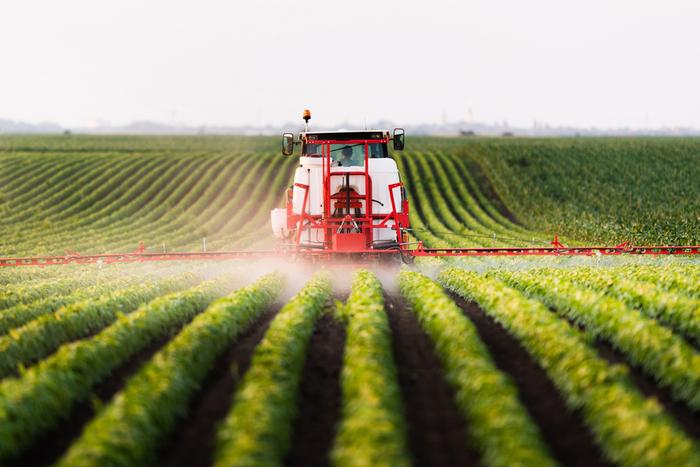In a groundbreaking development for sustainable agriculture, researchers from the Massachusetts Institute of Technology (MIT) have uncovered a novel technique that enhances the effectiveness of agricultural sprays while simultaneously minimizing environmental pollution. This advancement addresses a critical issue in farming by significantly reducing the amount of pesticides, herbicides, and fertilizers that inadvertently find their way into waterways, thereby protecting both ecosystems and human health.
The essence of this new approach revolves around the manipulation of droplet adhesion on plant surfaces. For years, farmers have faced the challenge of ensuring that sprayed materials stick to crops rather than bounce off. Traditional agricultural methods often lead to the over-application of chemicals, resulting in wasted product and detrimental runoff that can contaminate natural water systems. The team at MIT, led by Professor Kripa Varanasi and a group of enterprising alumni, has been investigating this challenge for over a decade, focusing on the physics of droplet behavior on hydrophobic plant leaves.
The researchers discovered an innovative solution by applying a thin, oily coating to droplets before they are sprayed onto crops. This technique significantly alters the interactions between the droplets and leaf surfaces. By doing so, the droplets are less likely to bounce off when they hit the leaves. Instead, they spread out and adhere, maximizing coverage and efficacy. This simple yet effective modification transforms the way agricultural sprays function, representing a potential paradigm shift in farming practices.
Initial experiments conducted by the research team employed high-speed cameras to observe the motion of droplets on treated and untreated surfaces. The findings were striking: untreated droplets would splatter and rebound upon contact, wasting valuable pesticides. In contrast, droplets coated with the oily agent retained their position, preventing unnecessary loss and ensuring that more product reaches the target area—the plants themselves.
The researchers also found that the amount of oil required for effective droplet retention was minimal, typically less than one percent of the droplet’s total volume. This efficiency means that farmers can incorporate this modification without significant alterations to their existing spraying equipment. This user-friendly aspect of the innovation is critical for facilitating adoption among farmers, who often resist complex changes that require new machinery or extensive retraining.
Moreover, the choice of oily materials isn’t restricted to novel substances. The MIT team demonstrated that commonly used surfactants and adjuvants—substances already present in farmers’ agricultural practices—could also serve the coating purpose. This compatibility means that farmers won’t need to introduce new chemicals into their routines, which can sometimes lead to unintended consequences and regulatory hurdles. Instead, they can simply optimize what they already have, protecting crops while increasing efficiency.
The implications of this research extend well beyond just enhancing pesticide adherence. The economic benefits are substantial and can potentially be transformational for the agricultural sector. With the right implementation of these improved spraying techniques, farmers can reduce their chemical expenses significantly—by as much as 30 to 50 percent, according to preliminary findings from real-world tests conducted in collaboration with the startup AgZen. This company, co-founded by the lead researchers, is focused on rolling out these technologies to bolster agricultural efficiency.
There’s also a profound environmental angle to consider. The consistent overapplication of pesticides has not only economic consequences but also serious implications for ecological health. The excessive runoff associated with traditional spraying methods has led to widespread chemical pollution, making studies essential that illustrate the global implications of such agricultural practices. According to research, nearly one-third of agricultural soils worldwide face significant risks due to pesticide contamination—data that further underscores the importance of more sustainable practices.
Implementing this coating system could enable the agricultural sector to adapt to an ever-growing global population, which necessitates not merely a doubling of food production but doing so with limited natural resources. As the researchers highlight, there is no opportunity to simply double arable land; thus, existing farmland must become dramatically more efficient, utilizing every possible innovation.
Research is also paving the way for this technology to be applicable across a broad spectrum of agricultural chemicals, including insecticides, fungicides, and nutrients—far beyond just conventional pesticides. This versatility opens a new avenue for integrated pest management and holistic agricultural strategies that can cater to various farming needs.
As the promise of increased efficiency and reduced costs moves closer to being realized, the technology is set to expand its reach. With plans to deploy this coating system across hundreds of thousands of acres, the economic impact could be vast. Jayaprakash, one of the lead researchers, articulates the vision succinctly: for a modest 6 percent reduction in pesticide expenditure, a billion-dollar savings could be passed back to U.S. farmers.
In summation, MIT’s pioneering research is not merely an incremental step in agricultural science; it offers a comprehensive solution to pressing environmental challenges. By enhancing droplet retention on plant leaves through innovative droplet coatings, this team has positioned itself at the forefront of sustainable agricultural practices. The findings not only illuminate a path toward improved agricultural efficiency but also highlight a strategic means to combat the ecological crises that arise from traditional farming methods.
The deployment of the developed technologies, including enhanced monitoring and droplet coating systems, symbolizes critical momentum in addressing agricultural inefficiencies while protecting our environment. Efforts to commercialize these findings stand to revolutionize farming, making agriculture safer, more economical, and ultimately more sustainable.
Subject of Research: Enhanced droplet retention in agricultural sprays
Article Title: Enhancing spray retention using cloaked droplets to reduce pesticide pollution
News Publication Date: October 2023
Web References: MIT News
References: Chandler, D. L. (2023). Enhancing spray retention using cloaked droplets to reduce pesticide pollution. Soft Matter.
Image Credits: Courtesy of Kripa Varanasi, et al.
Keywords: Sustainable Agriculture, Pesticide Efficiency, Environmental Protection, Agricultural Innovation, MIT Research




